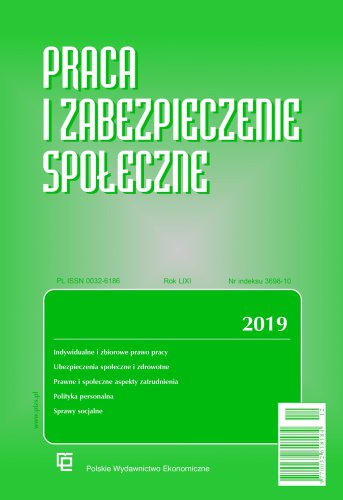Labour and Social Security Journal 12/2019
ISSN: 0032-6186
Pages: 56
Publication date: 2019
Place publication: Warszawa
Binding: paperback
Format: A4
Publication date: 2019
Place publication: Warszawa
Binding: paperback
Format: A4
DOI: 10.33226/0032-6186.2019.12.1
JEL: K31
DOI: 10.33226/0032-6186.2019.12.2
JEL: K31 (artykuł w języku angielskim)
DOI: 10.33226/0032-6186.2019.12.3
JEL: K31
DOI: 10.33226/0032-6186.2019.12.4
JEL: K31
DOI: 10.33226/0032-6186.2019.12.5
JEL: K31, K35
DOI: 10.33226/0032-6186.2019.12.6
JEL: K31
DOI: 10.33226/0032-6186.2019.12.7
JEL: K31
DOI: 10.33226/0032-6186.2019.12.8
JEL: K31
DOI: 10.33226/0032-6186.2019.12.9
DOI: DOI 10.33226/0032-6186.2019.12.10
| Odbiór osobisty | 0 € |
| Kurier Inpost | 4 € |
| Kurier FedEX | 4 € |
| Inpost Paczkomaty | 4 € |
| Free delivery in Reader's Club | from 47 € |

